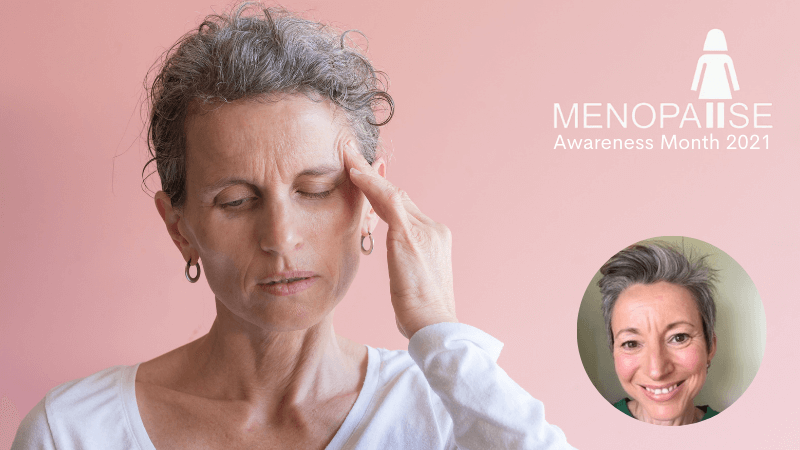Managing the menopause – Menopause Awareness Month 2021
By Natalie McIvor, Counsellor at The Eaves
Menopause is a natural process that every woman will eventually go through, like it or not. How a woman experiences this journey is greatly influenced by body type, family history and lifestyle. Some women sail through menopause but for many this time of life can be incredibly challenging and difficult, impacting negatively on family relationships and life in the workplace.
All too often women experience depression, anxiety and a feeling they are losing themselves, all as a result of decreasing hormone levels. Historically many women have been prescribed anti-depressants by GP’s at this time of their lives, when hormone replacement therapy (HRT) is often a more suitable course of action. This is not a linear process and if we look back to puberty this wasn’t much fun either especially the mood swings, all comparable to the menopause.
What is Menopause?
Menopause is the exact point in life when a woman stops having periods for a total of 12 months. This usually occurs between the ages of 45 and 55 with the average age in the UK being 51. However, perimenopause can start much earlier and is caused by changes in hormone levels. When a women’s body is most fertile, oestrogen and progesterone keep periods and production of eggs regular. As women get older it is harder to store as many eggs in the ovaries and it may be harder to conceive because there is less oestrogen being produced in the body. This gradual process is perimenopause.
Symptoms
At one time the only symptoms of menopause spoken about were hot flushes and weight gain, much of it was shrouded in mystery and not spoken about. Currently, the National Institute for Health and Care Excellence (NICE) guidelines state that there are 34 symptoms including vaginal dryness, fatigue, night sweats, decreased sex drive, joint/muscle pain and hip fractures later in life due to osteoporosis. All these symptoms can be debilitating and impact our mental health. The good news is all symptoms are manageable through lifestyle and diet changes, as well as natural and medical treatments.
Hormone Replacement Therapy (HRT)
HRT can help ease some of these symptoms and make transitioning through menopause so much easier. However, it is important to note that some women especially those with a history of breast cancer may not be able to take HRT and need a more natural approach. Testing for elevated levels of follicle-stimulating hormone (FSH) can be measured to confirm the menopause, a simple blood test organised through your GP surgery. Sadly, many perimenopausal women are not given HRT because it can be hard to diagnose, and this can leave them feeling unheard and isolated.
How can therapy help?
Psychological support such as talk therapy can be of great benefit at this time in a women’s life. Due to the nature of menopause and the transitioning body, women often experience intense feelings of grief and loss. Questions can immerge around identity, the role played within the family and the life choices made. All of which can be distressing and confusing. Therapy provides a space where you can explore those changes, mourn the natural ending that menopause marks and embrace the next chapter of your life, free of periods!
Our professionals see individuals of all ages, families, couples and young people 12 hours a day, Monday to Saturday between 9am and 9pm. Please call 01483 917000 to speak to a member of the referrals team. You can also send us an enquiry via our website. Click here to find out more.
Resources
NICE Guidelines. “Menopause: diagnosis and management”. National Institute for Health and Care Excellence, www.nice.co.uk. Accessed 15 September 2021.

